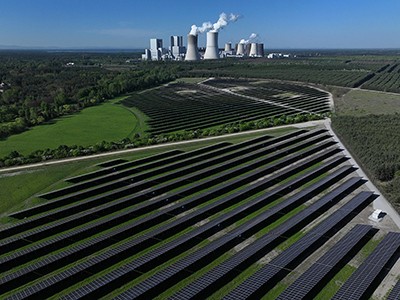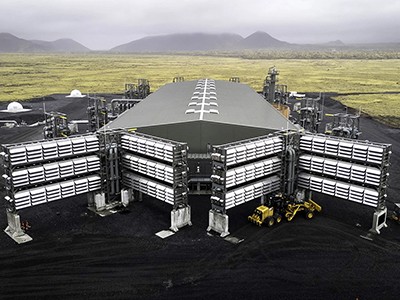This year has seen a stunning collapse of ambition when it comes to assuring a sustainable future. Populism, short sightedness and scientific ignorance deserve blame. But so do the cost-of-living crisis and deepening inequality; environmental goals are often the first casualty of economic stagnation.
Governments and businesses should know better. Nature loss, volatile energy prices and air pollution all undermine productivity. Fail to address such issues and the resulting spiral will be vicious. So why is the business case for protecting nature not stronger? Or at least more familiar, made more forcefully, more regularly and by more captains of industry?
While working on sustainable-finance projects with governments, banks and other financial institutions, I’ve found many smart, dedicated specialists. But, more widely, a basic grasp of natural capital is still lacking.
Why the green-technology race might not save the planet
One reason is that agile global supply chains provide a false sense of security. War in Ukraine? Buy grain from India. Water levels low on the Mississippi River? Ship goods by road. It’s easy to conclude that risks apply only to ‘other’ sectors, such as agriculture, but not to ‘mine’.
And some people fail to recognize the essential roles of nature in underpinning businesses. Natural capital provides environmental goods and services — raw materials, climate stability and flood protection. Depleting such assets means losing the economic benefits, too.
Business schools must do more to be part of the solution. Climate and biodiversity are increasingly central to business risk and strategy, supply-chain management, regulatory and disclosure requirements, brand management and customer engagement. Bridging the science–business divide — through research, teaching, outreach and engagement — can equip graduates with the skills to create a net-zero, nature-positive economy.
Yet much of the talent and expertise found in business schools is rarely shared in mainstream scientific journals. Equally, the journals that determine career progression at these institutions — those ranked highly by the Chartered Association of Business Schools (CABS) or the Financial Times — have been slow to engage with topics such as climate change, biodiversity and infectious diseases.
Here’s what business schools should do.
Acknowledge that science is foundational to sustainability. Teaching and research must be integrated with ecological and planetary-systems sciences. Some of my favourite studies in biodiversity finance use machine-learning tools to link newspaper headlines about biodiversity to investor sentiment and stock-market performance. In others, researchers work with banks to analyse which characteristics of conservation interventions might unlock private finance. More such studies are needed. But responding to headlines is not the same as responding to ecological changes or biodiversity-related risks. And the fact that deals take place does not mean that nature has benefited. Financial researchers need to work with natural scientists to determine real-world outcomes.
Six roadblocks to net zero — and how to get around them




